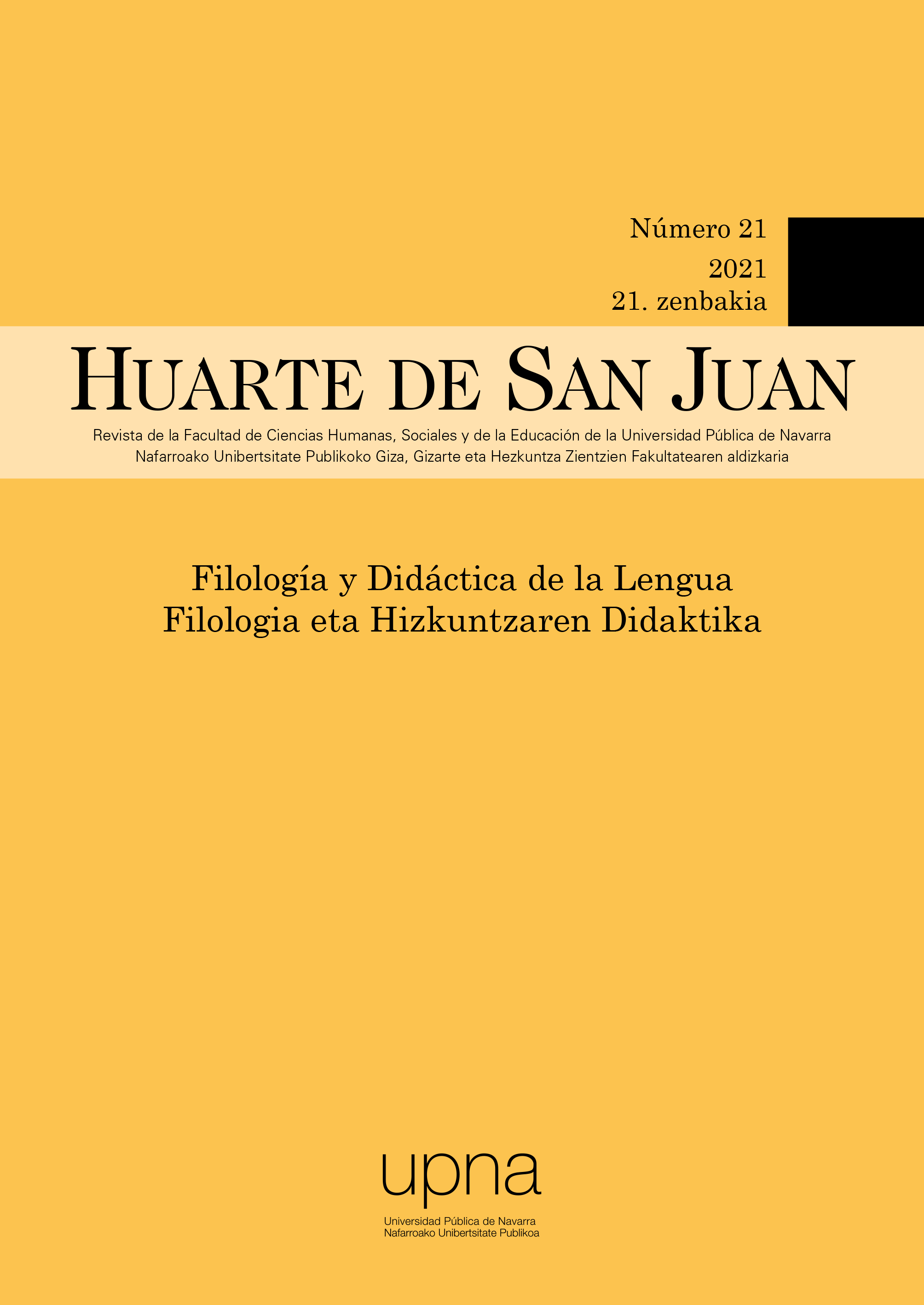Teaching Spanish as a Foreign Language in Latvia: sociolinguistic aspects
DOI:
https://doi.org/10.48035/rhsj-fd.21.9Keywords:
La política lingüística; la enseñanza de E/LE; la actitud lingüística; el estatus; el sistema educativoAbstract
The study is based on the aspects of the language policy in Latvia in relation to the foreign language teaching, specifically, Spanish, in the public sector. The main objective is to draw attention to the problems related to the low presence of Spanish as a Foreign Language (S/FL) in this sector and its prospects for the future. The methods applied in the study are case study, survey, as well as the qualitative content analysis. The analysis of the current situation is based on the theory of language management of Bernard Spolsky (Spolsky, 2009). Changes in the language management can be expected when there is a change in the status of the Spanish language and, as a consequence, change in the attitude of language managers towards S/FL in the foreign language market in Latvia.
Keywords: language policy, S/FL teaching, linguistic attitude, status, educational system
Downloads
References
Álvarez, A. (2009). Sobre la construcción discursiva del país: actitudes lingüísticas en Venezuela. Presente y Pasado. Revista de Historia, 14(27), 87-106.
Baltaiskalna, D. (2001). Latvijas iedzīvotāju lingvistiskā attieksme. Promocijas darba kopsavilkums. Latvijas Universitāte.
Baltiņš, M., y Druviete, I. (2017). Ceļavējš cilvēku ciltij. Valoda sabiedrībā. Rīga: Latviešu valodas aģentūra.
Comisión Europea. [2012a] (25 de enero de 2021). Informe de la Comisión Europea 2012. https://ec.europa.eu/commission/presscorner/detail/lv/IP_12_990
Comisión Europea. [2012b] (25 de enero de 2021). Eurobarómetro 2012. https://ec.europa.eu/echo/resources-campaigns/publications/eurobarometer2012
Druviete, I. (1998). Latvijas valodas politika Eiropas Savienības kontekstā. Latviešu valodas insititūts, LZA Ekonomikas insititūts.
Druviete, I. (2016). Latviešu valoda pasaules sociolingvistisko procesu kontekstā. Latviešu valodas aģentūra.
Druviete, I., Valdmanis, J. (2010). Language Use in Higher Education Establishments in Latvia. En M.Humar y M.Zagar Karer (Eds.), National Languages in Higher Education (pp. 91-95). Zalozba ZRC.
Encuesta 1. Aptauja par lingvistisko attieksmi pret svešvalodām, t.sk.spāņu valodu, Latvijā (Encuesta sobre la actitud lingüística hacia las lenguas extranjeras, entre ellas, hacia el español, en Letonia). https://docs.google.com/forms/d/11E8iJHQ0poQILEsP-5khTypPXDKmxlI_nYvI6qdnHHs/edit [Recuperado el 15-04-2021].
Encuesta 2. Aptauja par spāņu valodu Latvijā: apguve un interese par to. (Encuesta sobre el español en Letonia: adquisición e interés por ella). https://docs.google.com/forms/d/1mFtt9iQNAizsO6g8kjjmjdAKDKq2H90kC3sP0tAw3oo/edit [Recuperado el 15-04-2021].
Escoriza Morera, L. (2008). Comentarios de política y planificación lingüísticas. Ariel.
Fishman, J. (1995). Sociología del lenguaje. Cátedra.
Harris, J. (2007). Bilingual education and bilingualism in Ireland North and South. International Journal of Bilingual Education and Bilingualism, 10(4), 359-368. https://doi.org/10.2167/beb449.0
Haberland, H. (2011). Local Languages as the Languages of Internationalization. Internationalization and Language Choise. Ibunka komyunikeshon ronshuu/Intercultural Intercultural Communication Review (9), 37-47.
Instituto Cervantes. (3 de mayo de 2021). Informe del Instituto Cervantes 2020. https://cvc.cervantes.es/lengua/espanol_lengua_viva/pdf/espanol_lengua_viva_2020.pdf
Kibermane, K., y Kļava, G. (2016). Valodas Latvijā: valsts valoda, valodu prasme, valodas izglītībā. 2010.–2015. Latviešu valodas aģentūra.
Kristapsone, S. (2014). Zinātniskā pētniecība studiju procesā. Biznesa augstskola Turība.
Lambert, W. (1964). Social Psychology. Prentice-Hall.
Latvijas Vēstnesis. (5 de mayo de 2021). Latvijas Republikas Augstskolu likums (La Ley sobre la Educación Superior). https://www.vestnesis.lv/ta/id/37967-augstskolu- likums
Legal Acts of the Republic of Latvia. (3 de mayo de 2021). Regulation No.747. Regulations Regarding the State Basic Education Standard and Model Basic Education Programmes. https://likumi.lv/ta/en/en/id/303768
Legal Acts of the Republic of Latvia. (3 de mayo de 2021). Regulation No.416. Regulations Regarding the State General Secondary Education Standard and Model General Secondary Education Programmes. https://likumi.lv/ta/en/en/id/309597
Liepa, Z. (15 de septiembre de 2020). Spanish in Latvia: Language attitude as a factor in the diffusion of the language. Universidad de Letonia. https://dspace.lu.lv/dspace/handle/7/52666
Lodares, J. R. (2005). El porvenir del español. Taurus.
López Morales, U. (2004). Sociolingüística. Gredos.
Mayring, F. (2000). Qualitative Content Analysis. Forum Qualitative Sozialforchung/Forum:Qualitative Social Research, 1 (2), https://doi.org/10.17169/fqs-1.2.1089
Ministerio de Ciencia y Educación de la República de Letonia. (3 de mayo de 2021). Proyecto Skola 2030. https://www.skola2030.lv/lv/skolotajiem/macibu-jomas/valodas
Medina López, J. (2002). Lenguas en contacto. Arco Libros.
Montoya Ramírez, M.ª I. (Ed.). (2005). Enseñanza de la Lengua y Cultura Españolas a extranjeros. Universidad de Granada.
Moreno Fernández, F. (2009). Principios de sociolingüística y sociología del lenguaje. Ariel.
Rozenberga, M. (1999). Spāņu valoda Latvijā. LU – 80. Konferences referātu tēzes. Latvijas Universitāte,59-60.
Saussure, F, (1931). Cours de linguistique générale. Payot.
Savignon, S. J. (1985). Evaluation of communicative competence: The ACTFL Provisional Proficiency Guidelines. Canadian Modern Language Review (41), 1000-1007.
Siguan, M. (2001). Bilingüismo y lenguas en contacto. Alianza Editorial.
Spo Spolsky, B. (2009). Language management. University Press.
Spolskis, B. (2011). Valodas pārvaldība. (Language management). (Traducción del inglés al letón. Traductora I. Druviete). Zinātne.
Yin, R. K. (2009). Case Study Research: Design and Methods. SAGE Publications, Inc.

Downloads
Published
How to Cite
Issue
Section
License
Copyright (c) 2022 Alla Placinska

This work is licensed under a Creative Commons Attribution-NonCommercial-NoDerivatives 4.0 International License.
All articles are published under a Creative Commons (BY-NC-ND 4.0) license. Each article will be assigned a DOI.
Authors retain copyright of their work and grant the journal the right to the first publication. Authors can sign additional agreements to non-exclusive distribution of the published version of the article (for example, in an institutional repository) as long as appropriate attribution to the original publication is provided. Articles can be uploaded to institutional repositories immediately after publication.
Electronic distribution of the articles (for example, academic social networks or personal webpages) is allowed and encouraged.
The journal reserves the right to publicise the work in social networks and other electronic means.






